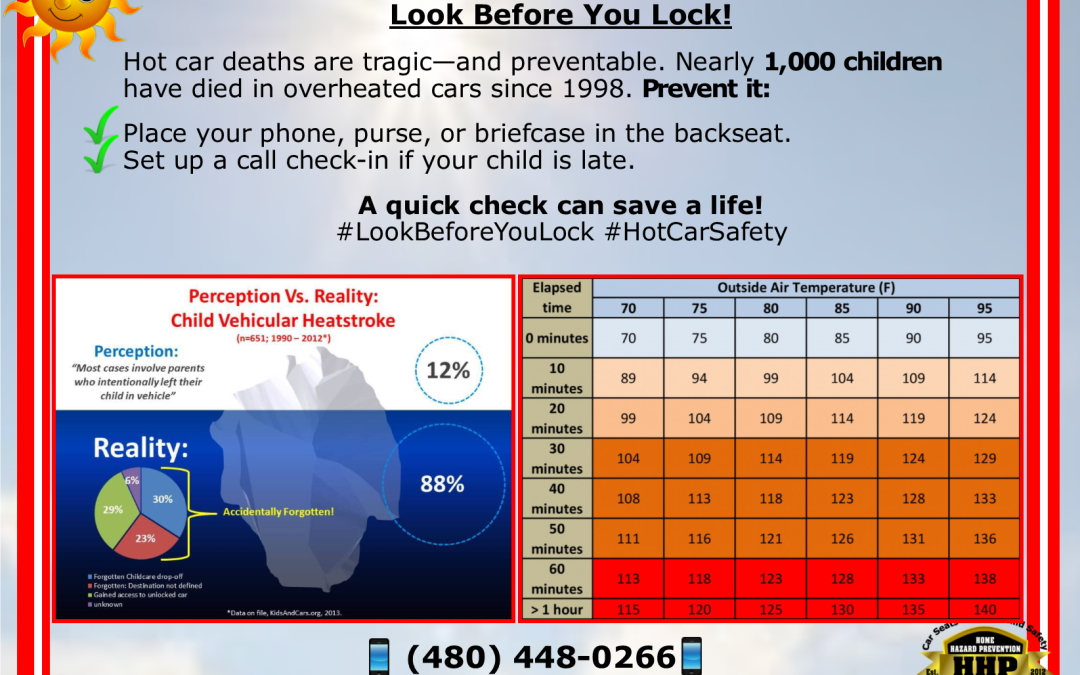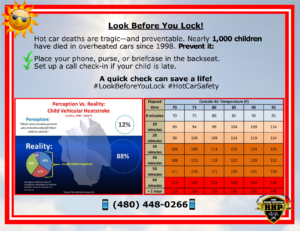Forgotten Baby Syndrome: A Deadly Yet Preventable Tragedy
Summer Heat + Kids + Cars = Danger
Each summer, tragic and preventable deaths occur when children are accidentally left in hot vehicles. It happens more often than you might think—and to the best of parents. A change in routine, stress, or even simple daydreaming can result in Forgotten Baby Syndrome (FBS), a condition where a parent unintentionally leaves a child in the car.
What is Forgotten Baby Syndrome?
Forgotten Baby Syndrome can affect anyone—clergymen, scientists, first responders, teachers, and more. It is a failure of the brain’s memory systems, often triggered by stress, fatigue, or routine shifts.
David Diamond, a professor at the University of South Florida, explains:
“Forgotten Baby Syndrome occurs when the brain’s habit memory system takes over and suppresses the prospective memory system. This can cause a parent to completely lose awareness that their child is in the car.”
This condition isn’t about negligence—it’s about how the human brain functions under stress and habit formation. A routine drive to work instead of daycare can turn into a life-threatening mistake.
The Reality of Hot Car Deaths
Even on a mild 70°F day, a car’s interior can reach 100°F in minutes. On a hot Arizona summer day, temperatures inside a vehicle can soar past 140°F in under an hour. A child’s body heats up 3-5 times faster than an adult’s, making these situations deadly within minutes. On average, 50 children die from hot car deaths every year in the U.S.
Prevention Tips to Save Lives
Never leave a child unattended in a vehicle. Even if you’re “just running inside for a minute.” Teach kids that cars are not play areas. Keep doors locked and keys out of reach. Always check the backseat before locking your car and walking away. Set up a child drop-off confirmation system. If your partner usually drops off your child, have them call or text to confirm. Ask daycare providers to call if your child doesn’t arrive. Place a critical item in the backseat. A purse, briefcase, or even your left shoe can ensure you check for your child. Use a stuffed animal reminder. Place a toy in the front seat whenever your child is in their car seat. If you see a child alone in a hot car, act immediately! Call 911 and get help ASAP. If the child is in distress, remove them safely and stay until emergency responders arrive.
Arizona’s Hot Car Law: What You Can Do
Arizona law allows individuals to intervene in hot car emergencies. However, there are steps you must follow:
1️⃣ Shout for help. Get others involved immediately. 2️⃣ Call 911. Provide the exact location and situation. 3️⃣ If necessary, break a window. Remove the child or pet from the vehicle if they are in distress. 4️⃣ Stay at the scene. Wait for police and paramedics to arrive.
For more details, visit the Arizona Humane Society.
Let’s Make Forgotten Baby Syndrome a Thing of the Past
These heartbreaking deaths are 100% preventable. By raising awareness and following simple safety measures, we can protect our children and prevent another tragedy. Share this information with friends and family—because one small habit change can save a life.
Join the conversation! Share your safety tips and experiences in the comments below or tag us on social media. #HeatstrokeAwareness #CheckTheBackSeat #NoChildLeftBehind
*******
For expert firefighter-led safety solutions, trust Home Hazard Prevention to keep your family and business protected. Whether its CPR training, car seat education, or home hazard prevention, “Safety Nick” and his team are here to help-affordably and conveniently. Because when it comes to safety, experience matters! Contact Home Hazard Prevention today at (480) 448-0266 or Nick@HomeHazardPrevention.com
© HHP, LLC 2012-2025


